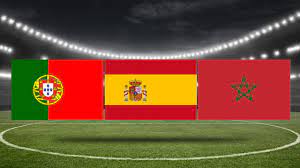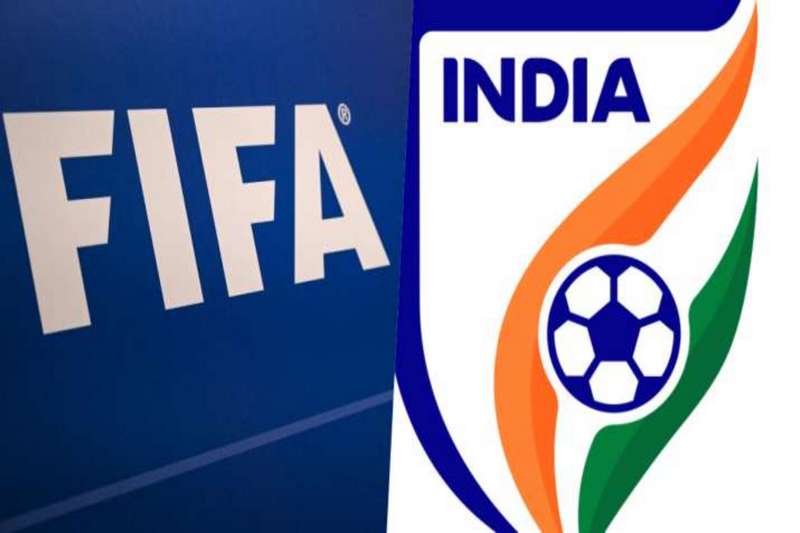
Five previous failed attempts has not put Morocco off making a sixth bid to host a World Cup, but this time they have joined up with Spain and Portugal for a multi-nation attempt to secure the rights to stage the 2030 tournament. In doing so they have put forward the first transcontinental bid in the history of the competition.
The Atlas Lions, as the side are known, will hope that their fantastic performances in Qatar, where they sprung a real surprise and became the the first African side to reach the semi-finals of a World Cup, will act as a major boost in their efforts to be only the second country from the continent to play hosts.
It was South Africa who successfully hosted the previous time, back in 2010, which was actually also one of the five failed bidding years of the Moroccans, with the others being in 1994, 1998, 2006 and 2026.
This triple proposal will take on a similar multi-nation bid that has been made by Argentina, Chile, Paraguay and Uruguay. The presence of the Uruguayans may be the main concern, as the 2030 tournament marks the 100-year anniversary of the first ever World Cup, which of course took place in the small South American country, and therefore could have some sentimental significance and gain some crucial associated member votes.
A decision will be announced by FIFA at next year’s congress, which will be held in Osaka, Japan.
Increased optimism
There obviously will be no complacency from the Moroccans having tasting disappointment so often, but there does seem to be a more confident air about their chances this time, naturally helped by the Spanish and Portuguese input and logistical strength.
There is also the reduced expenditure required, which will also go down well with the public, but the on-going development of the game at all levels throughout the country, has definitely given an extra dimension to the latest attempt.
Continents coming together
Chakib Benmoussa, Morocco’s sports minister feels that this is the “right time” for the country and added that it was a “natural bid” because of the three nations’ close ties, remarking that geographically “the distances are closer than the other multiple group.”
The joint bid, which is unprecedented in football history, will bring together Africa and Europe, the northern and southern Mediterranean, and the African, Arab and Euro-Mediterranean worlds. Mr Benmoussa went on to say that he believed that it was an opportunity to bring the best out of all three countries: “In effect it is a combination of genius, creativity, experience and means.”
He refused to be drawn on the potential bidding opposition, preferring to concentrate on their own proposition. “We do not know all of the competitors who will be bidding, but we will work until next year, maybe spring 2024, to do our best to have the best bidding documents.”
Backing from 2010 hosts
The South African Football Association president Danny Jordaan, the man who led their organisation of the 2010 tournament, wished his fellow African nation well, expressing his belief that with the other two countries, it represented a unique proposal. “With Portugal and Spain being members of UEFA and Morocco as a member of the Confederation of Africa Football (CAF), it brings together for the first time in the history of world football, two continental bodies,” he said, with genuine optimism for success.
African focus to be on Morocco
There have been mutterings that Egypt could form an unlikely three-way alliance with Greece and Saudi Arabia, and although that does not seem to have any legs, were it to become a genuine proposal, it could split support from delegates on the African continent.
Those fears however, were quickly dismissed by the president of the CAF, Patrice Motsepe. He stressed: “From our perspective, we really want to make sure that an African nation is indeed part of a successful bid; therefore we will engage and make sure that we do not get our votes dispersed, and ensure that there is a focus, which is why I am encouraging and welcome the announcement by Morocco.”
Additional games improves Moroccan hopes
The Africans hopes of a successful bid probably improved further when FIFA scrapped plans to have 16 groups of three at the next World Cup and switched back to the tried and tested four team groups. This despite the fact that there would be a necessity to increase the number of those from eight to twelve, to accommodate the additional 16 teams who will be featuring at the 2026 competition, spread across Canada, the United States, and Mexico.
In hindsight there was a realisation that the prospect of collusion increased with just three nations in each group, when it came to the deciding fixtures. Plus, in Qatar last year, there was considerable excitement right up to the final minutes of the final round of matches, prompting the thought: “If it is not broken, do not fix it.”
Had they stuck with their initial plan, there would have been 80 games played in total, but this now becomes 104, with a new round-of-32 created. Presuming they continue with this format for 2030, then the additional stadia in Morocco will be a considerable help.
Massive financial boost
For Morocco to be a joint host it would bring much more than just the prestige that is associated with it. The development opportunities and financial gains it offers up could be massive for the country. The influx of visitors from opposing nations would do wonders for the economy and the improvements in infrastructure and broadcasting would be a huge boost in the short and possibly more importantly, the long term.
The success of the national team at the 2022 World Cup will already have intensified interest manifold, but the prospect of the main world football tournament taking place in its own backyard, will take things to an entirely different level.
Criteria to be satisfied
The bid put together with Spain and Portugal will have to satisfy three specific categories, before any proposal could be considered suitable to even be allowed to move forward to a congress vote:
Firstly, there is a compliance assessment, where all aspects of the bid need to show that they comply with predetermined tournament hosting requirements.
Secondly, a risk assessment would be undertaken to ascertain sustainability, the human rights impact, and the financial outcome for the host, or hosts.
Finally, a technical evaluation report would look into whether the applicant nation, or nations, could provide the necessary infrastructure and commercial amenities, such as stadiums, critical services, and hospitality.
If they overcome those hurdles, then a FIFA delegation will be given permission to inspect the facilities being proposed.
Capacities to meet
Specific stadium capacities are one of the issues that FIFA are very keen on with certain criteria insisted upon. If nothing changes from the last World Cup then the opening game will need to be played in a ground capable of accommodating at least 80,000 spectators.
Then all other group stage fixtures and matches up to and including the Quarter Finals, will have to take place in venues of a minimum of 40,000 seats. For a Semi Final it rises to 60,000, with the Final back up to the opening capacity.
Already sufficient stadiums
The amounts might well be amended before 2030, but were they to do so, they would only increase not decrease. In Morocco’s favour are the six arenas already in existence in the country that have capacities in excess of the minimum requirement, and these are in the cities of Tangier, Rabat, Casablanca, Agadir, Marrakech, and Fez.
Add to these the ten or more in Spain, including the huge stadiums in Barcelona and Madrid, plus others in Seville, Bilbao, and Valencia; together with those in Lisbon and Porto in Portugal, and that particular box already has a huge tick against it.
Training and accommodation requirements
They also look towards the facilities that countries can provide away from the match day and these include: training camp bases and hotels; training sites and hotels for each individual venue; a base and hotel for match officials. There would need to be one for each competing team with a number of alternatives proposed too. These would then be inspected for suitability.
FIFA sets very high standards, but in the case of Morocco, Spain and Portugal, the cities involved already all have excellent options, which would almost certainly be improved significantly, were they to be successful with their bid.
Substantially more votes can be expected
When Morocco lost out in their attempts to host the 2026 World Cup, they received 65 votes compared to the 134 of Canada, the United States, and Mexico. These votes were submitted by all of the eligible member associations of FIFA, excluding the bidding nations and any associations linked to them.
Since then their popularity has grown significantly especially since their exploits in Qatar. Also, with European countries likely to be in favour of the trio’s bid, for convenience if nothing else, and similar feelings from African nations, the bid can expect huge backing.
Shared belief
Were they to be successful it would be only the third World Cup contested with more than one host. As already touched on, the 2026 tournament will have three hosts and the only other time where there was more than one was back in 2002, when Japan and South Korea shared the honour.






0 Comments